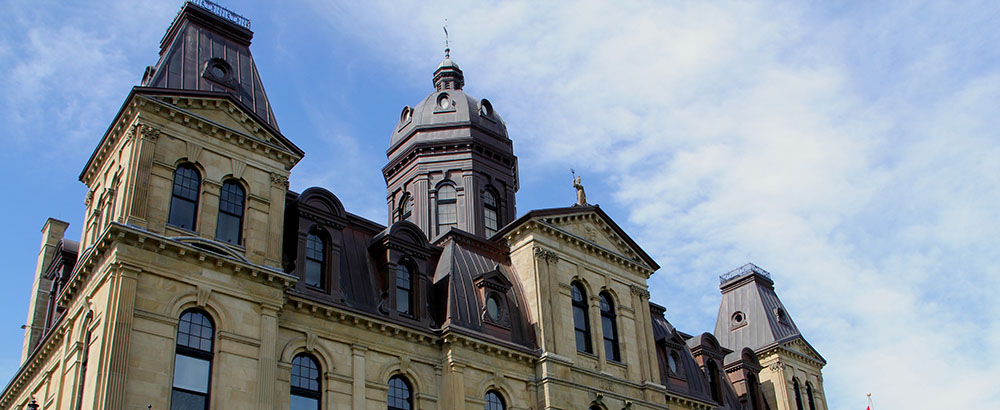
What’s Happening in New Brunswick?
Egale Explains
This page was published in September 2023
Policy 713 (Sexual Orientation and Gender Identity) first came into effect in 2020 and sets minimum standards for 2SLGBTQI inclusion in New Brunswick public schools. Initially, it guaranteed that all students could use the names and pronouns they chose at school.
What changes did New Brunswick make to Policy 713?
In August of 2023, the Government of New Brunswick made the following changes to the section on self-identification:
- When a student under the age of 16 requests that a different name or pronoun be used for them for informal school interactions, school staff are prohibited from honouring that request unless the student’s parents consent to the change.
- In other words, school staff is required to deadname and misgender the student unless and until their parents grant consent for the change.
- When school staff determine that it is “not in the best interest of the student or could cause harm to them (physically or mentally)” for the student to speak to their parents about their gender identity, they are still not allowed to gender the student correctly. Instead, school staff are directed to encourage the student to speak to a professional (like a counsellor or social worker) to develop a plan to come out to their parents or for support.
- Professionals like counsellors or social workers are allowed to use a student’s chosen name in one-on-one interactions while supporting the student in preparing to come out to their parents or otherwise “communicating one on one […] for support.”
The Policy Updates, Explained
New Brunswick’s mandate that teachers must misgender their students has implications for 2SLGBTQI students in New Brunswick beyond its devastating effect on the students who are directly affected.
12% of trans youth aged 14-18 who participated in the Canadian Trans Youth Health Survey rarely or never feel safe at home. 15% reported having experienced physical abuse at home. Many young 2SLGBTQI people have supportive, loving families. Young people with supportive families come out to their parents when they are ready. This is true whether the issue is a same-gender relationship or about their chosen names and pronouns. There is also a minority of young 2SLGBTQI people who would not be safe at home if they were outed. Parental rejection is associated with a range of negative outcomes for 2SLGBTQI youth. The threat of forced outing also erodes students’ trust in educators and sense of safety at school.
School connectedness is a key factor in young people’s mental health and levels of academic achievement, and being misgendered at school has strong negative effects on school connectedness. Trans participants in Egale’s Still in Every Class in Every School study who were prevented from using their chosen name and pronouns were more likely than trans students who were not prevented from using their chosen name and pronouns to agree with the statements: “It is hard for me to feel accepted at my school” (77% versus 50%); “I wish I were in a different school” (59% versus 29%); “I don’t like being at school” (80% versus 57%). Other research has found that the use of chosen names at school for trans youth is associated with a reduction in depressive symptoms and increased self-esteem, and that having supportive teachers is itself associated with school connectedness as well as better attendance at school.
All 2SLGBTQI students in New Brunswick are being denied the ability to succeed to their fullest potential by the Government of New Brunswick’s actions. Forcing young people to choose between being misgendered and coming out is unconscionable, and so is forcing teachers to ignore their professional ethical standards and harm their students in this way.
Legal Action
Egale Canada and New Brunswick-based 2SLGBTQI organizations Alter Acadie, Chroma NB, and Imprint Youth have been granted leave to intervene as added parties in The Canadian Civil Liberties Association v. New Brunswick. The case is a legal challenge to the government of New Brunswick’s changes to Policy 713, which violates Charter protections for gender diverse students.
Learn more about the case here.
2SLGBTQI communities are under attack. We need your support.
Your donation will go towards our litigation and advocacy efforts, which include initiating and supporting litigation to combat discriminatory government policies and legislation, and making that work accessible to the public. Our aim is to help create a world, without homophobia, biphobia, transphobia, and all other forms of oppression so that every person can achieve their full potential, free from hatred and bias.